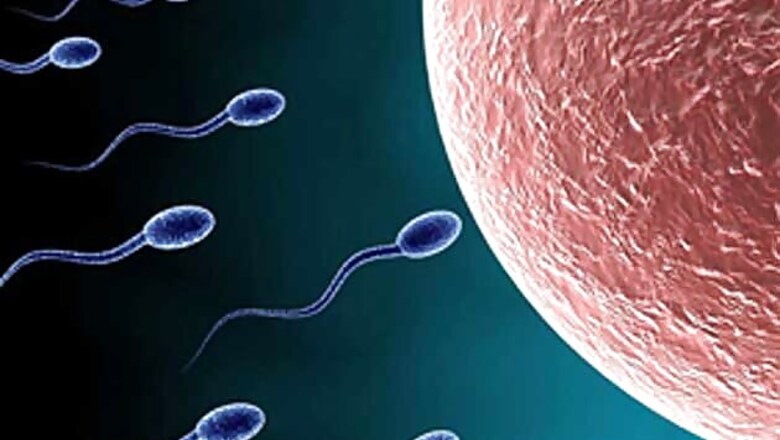
views
Washington: Researchers are adapting a new technology to select the healthiest and best swimming sperm from a sample of semen to increase success rates for in-vitro-fertilisation (IVF).
Microfluidics - micro-scale technologies that were originally developed to enable high-throughput gene sequencing and for Point-of-Care diagnostics - are now being adapted to enhance sperm sorting.
These new methods are generating promising results in applications such as single-sperm genomics, in-home male fertility testing, and wildlife conservation efforts that seek to maintain populations of endangered species, local media reported.
"Fertilisation and reproduction are key to the propagation of a species," said senior author Savas Tasoglu, an assistant professor in University of Connecticut's Department of Mechanical Engineering.
"Microfluidic technologies offer to develop a better understanding of the underlying mechanisms for sperm's motion in complex microenvironments," said Tasoglu.
Conventional methods for sperm sorting can cause DNA damage, require labour-intensive procedures, and often yield low purity.
Researchers provide a summary of recently emerging easy-to-use, disposable, inexpensive, and high-throughput microfluidic solutions for sperm selection, which include devices that sort sperm through the use of chemicals, heat, gravity, and other forces and factors.
"Each of these, especially combinations of multiple approaches, has great potential to sort or control sperm cells and ultimately revolutionise sperm research," said lead author Stephanie Knowlton. The research was published in the journal Trends in Biotechnology.




















Comments
0 comment